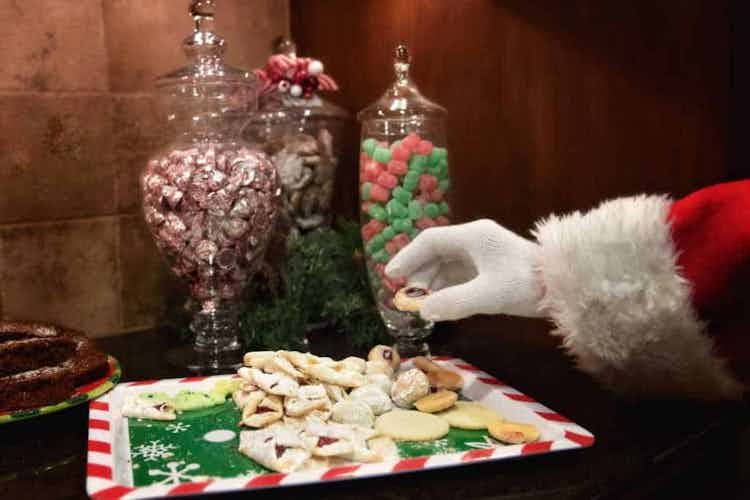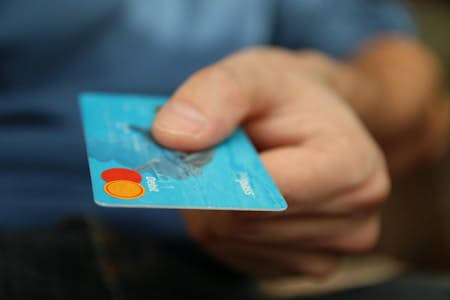Christmas food is one of the best things about this time of year. The sumptuous turkey, tangy cranberry sauce, crispy potatoes and late-night chocolates make the party atmosphere even better. But buying all these delicious treats could cost a lot of money. So how can you save money on your Christmas food shopping and still enjoy a feast?
Set a budget
Your Christmas groceries are just one of your additional expenses at this time of year. So before you open your wallet, consider making a budget for all these expenses. You should allocate money to different things, from Christmas gifts to food. A budget will make it easier to see how much you can spend on various items.
When you have a budget for Christmas food, you should also consider your food priorities. For example, is turkey a big thing in your family that you're willing to spend money on or would you rather splash out on the desserts?
Remember to track your spending as well! For example, if you split your Christmas food shopping into multiple trips to the supermarket, ensure you're not spending the entire budget on a single shop!
Create a detailed shopping list
Impulse buying is a guaranteed way to increase your shopping bill. Start creating a detailed grocery list of the things you need to buy for Christmas to avoid shopping on a whim.
Your Christmas food shopping list should include all the things you want to get, including how much food you need. Creating the list will help you plan your dinner and ensure you don't buy too much food.
It is also an excellent time to reflect on the foods you want. There is no need to buy Brussels sprouts and parsnips if no one ever wants to eat them willingly! There are many great Christmas traditions you should hold on to. But eating foods no one enjoys eating aren't among them. Don't be afraid to try new things and say goodbye to foods you don't like. If you really need bread sauce and trimmings, control the portion sizes and use them as a small side dish.
Buy non-perishables in advance
You might have several food items on the list that don’t go bad even in a few months. You can always buy non-perishables a few months before Christmas. Crisps, gingerbread cookies and certain canned goods stay good for a long time - as long as you don’t eat them!
Shopping early will ensure you don’t have to buy all the food at once. It allows you to take advantage of sales, too. Identify the non-perishables on your shopping list and start looking to fill your cupboards with the items whenever the items are on sale.
Shop frozen produce and learn to freeze
Frozen products can end up costing less than fresh produce. The good thing about frozen food items is that you can also buy them earlier. You can look for deals and fill your freezer with vegetables and pastries ready for the big party. Foods like pigs in blankets and croissants are great for snacks and Christmas parties and often cost less if you buy them frozen rather than fresh.
Alternatively, you could buy fresh and freeze the produce. If you find fresh veggies cheap at a local market, you can chop and cut the vegetables and pop them in the freezer. They will be nice and ready for Christmas dinner!
Since cooking and baking your own food is cheaper than buying ready-made, freezing cooked food is an excellent strategy for many Christmas dishes. For example, you could make a batch of mince pies and freeze them. You get to do the baking before the Christmas stress kicks in and save money while doing it!
Remember that you can freeze some leftovers for the new year if needed. You don't have to eat Christmas food only on Christmas Day and Boxing Day. So bag your red cabbage and turkey into small portions and look forward to brightening your January blues with your favourite festive foods!
Compare prices
If you can shop at different supermarkets without hassle, you should compare prices and split your shopping. For example, you might find veggies and panettone on sale at Tesco while enjoying a cheaper turkey from ASDA. You can quickly search online before venturing into the shops or use price comparison apps to find the best deals.
Be aware of the deals
Supermarkets often use deals and offers to get you to buy more. While these can sound good, they don't always mean you save money. The problem with multi-buy offers is that you might buy three items but only use two. Food waste is not only a matter of wasting money but is also harmful to the environment. Only go for multi-buy deals if you know you’ll use all the products before they expire.
Be careful of other deals as well. Branded products might be on sale but still cost more than supermarket brands. Compare the price of similar products before you grab that sale item.
Favour supermarket brands
While shopping, don't just grab the first thing you see or opt for your usual brand. Compare different options, and favour supermarket own brands. These are often far cheaper, and the quality isn't that different.
One thing to note when shopping is that product placement is carefully considered. The more expensive brands are often at your eye level – easy to see and grab. The cheaper alternatives are usually placed lower. So it is worth looking around to make sure you find a bargain!
Make a last-minute dash
If you don't mind whether you get all the exact items you want, then you could save money by shopping at the very final minute. Since supermarkets are closed on Christmas Day, and many might not even open up on Boxing Day, they want to get rid of stuff during the closing hours on Christmas Eve. You can find plenty of discounted products in the aisles at that point across the aisles.
Remember that you might find emptier shelves, and shopping on Christmas Eve might not be the most stress-free experience. But if you don't mind, you could be in for a bargain! However, you need to keep your budget and food needs in mind. Otherwise, you might fill your bags with stuff you don't need.
Learn to use leftovers
Even if you make a detailed list of foods to buy, you might end up with leftovers. Since you've already paid for the food, you do not want to waste it! So it's a good idea to be prepared and have a few recipe ideas ready for leftovers.
For example, you can add cuts of meat and veggies to frittatas for a hearty lunch or breakfast. You can also use leftover veggies in stews or soups. Have ideas for mixing up any leftovers to ensure you don't have to eat the same thing for multiple days!
Saving money on your Christmas food shopping
Roast potatoes, gammon and Christmas pudding - are all big Christmas favourites. But with careful planning and shopping around, your Christmas menu doesn’t have to cost a fortune. You can enjoy the big day and use any leftover food in the days to come. So get creative and enjoy a budget-friendly yet tasty Christmas!






